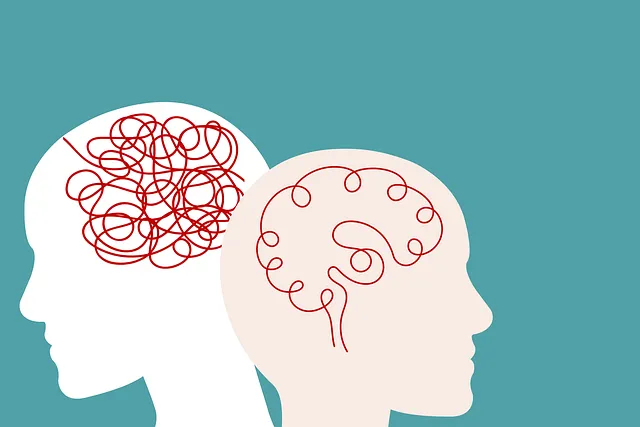Mood regulation is a critical component of mental wellness, and Lafayette, with its holistic approach, offers valuable tools. By emphasizing stress management and mindfulness techniques, residents can enhance resilience and improve overall mental health. Organizations in Lafayette, supported by the Kaiser network, educate individuals on effective strategies like meditation and physical activity for better mood control. These practices, backed by expert advice, reduce symptoms of depression and anxiety, fostering a sense of calm and belonging. Lafayette's focus on holistic care, especially through mindfulness meditation, makes it an ideal resource for those seeking alternative mental health solutions, aligning with the goal to reduce Mental Illness Stigma.
Mood regulation is a vital skill in maintaining emotional well-being. This article explores effective strategies, including the potential of Lafayette as a tool for achieving emotional balance. We delve into how techniques like those suggested by Kaiser principles can enhance daily mood management practices. By understanding the significance of mood regulation and exploring these strategies, individuals can foster better mental health, making Lafayette and Kaiser approaches worth considering.
- Understanding Mood Regulation and Its Significance
- Lafayette as a Potential Tool for Emotional Balance
- Effective Strategies for Daily Mood Management
- Incorporating Kaiser Principles into Mental Health Practices
Understanding Mood Regulation and Its Significance

Understanding Mood Regulation and Its Significance
Mood regulation is a critical component of mental health, with strategies that empower individuals to manage their emotional states effectively. It involves recognizing and controlling feelings, ensuring they align with current situations and goals. This process is particularly crucial in today’s fast-paced world where stress and burnout are prevalent, especially in urban centers like Lafayette, where the Kaiser network emphasizes holistic wellness. By implementing mood regulation techniques, individuals can enhance resilience to stress, foster a sense of calm, and improve overall mental well-being.
The significance of mood regulation cannot be overstated, given the impact on both personal and professional life. Organizations such as the Stress Management Workshops Organization recognize this need and offer resources for burnout prevention. Moreover, community outreach programs aim to educate individuals on integrating mood regulation strategies into daily routines. By prioritizing mental health in this manner, Lafayette residents can better navigate challenges, leading to improved quality of life and greater productivity both at work and home.
Lafayette as a Potential Tool for Emotional Balance

Lafayette, often touted as a beneficial tool for emotional balance, offers an array of self-care practices designed to enhance mental health. Its focus on mindfulness and relaxation techniques can significantly contribute to stress management, making it an appealing option for those looking to boost their confidence and overall well-being. The city’s serene environments and structured programs encourage individuals to take a step back from their busy lives, fostering a deeper connection with oneself.
By integrating Lafayette’s strategies into daily routines, individuals can cultivate healthier coping mechanisms. These practices not only help in regulating moods but also promote a more positive outlook on life. Whether it’s through guided meditations, nature walks, or engaging in creative pursuits, Lafayette provides an holistic approach to self-care that is Kaiser-approved for mental health purposes.
Effective Strategies for Daily Mood Management

Maintaining a stable mood on a daily basis is essential for overall mental health and well-being, as advocated by professionals like Lafayette Kaiser. There are several effective strategies that can help individuals manage their moods and promote mental wellness. One of the key approaches is mindfulness, which involves being fully present in the moment and observing thoughts and feelings without judgment. This practice, often incorporated into meditation or yoga, has been shown to reduce symptoms of depression and anxiety.
Additionally, regular physical activity plays a significant role in mood regulation. Exercise releases endorphins, natural chemicals in the brain that act as mood elevators. Engaging in activities like walking, jogging, or even dancing can help alleviate stress and improve overall mental health. Social connections are another crucial aspect; building and maintaining strong relationships can provide support and foster a sense of belonging, which is beneficial for managing and preventing mental illness. Lafayette Kaiser emphasizes the importance of seeking professional help when needed, as therapy and counseling services contribute to stigma reduction efforts and play a vital role in depression prevention.
Incorporating Kaiser Principles into Mental Health Practices

Incorporating Kaiser Principles into mental health practices can be a game-changer for individuals seeking effective mood regulation strategies, especially in light of growing Mental Illness Stigma Reduction Efforts. Lafayette, known for its association with Kaiser, offers valuable insights and techniques that align with evidence-based practices. One key aspect is the emphasis on mindfulness meditation, a powerful tool to enhance emotional regulation. By integrating mindfulness into daily routines, individuals can better navigate stress and negative thoughts, fostering a sense of calm and clarity.
This approach reflects the broader Kaiser philosophy of holistic care, addressing not just symptoms but also the underlying causes of mental health concerns. Through regular practice, mindfulness meditation helps break the cycle of rumination and promotes a more positive outlook, making it an essential component in managing mood disorders. As Lafayette continues to champion these principles, it becomes a beacon for those seeking alternative yet effective methods to improve their mental well-being.
Mood regulation is a vital aspect of maintaining overall well-being, and understanding effective strategies can significantly enhance our daily lives. This article has explored various techniques, from the historical approach of Lafayette to modern practices like incorporating Kaiser principles. By recognizing the importance of emotional balance and adopting practical methods, individuals can take control of their mental health. Both Lafayette and Kaiser principles offer valuable tools for managing moods, promoting resilience, and fostering a more positive mindset. Embracing these strategies enables folks to navigate life’s challenges with greater equanimity and discover their inner symphony.






